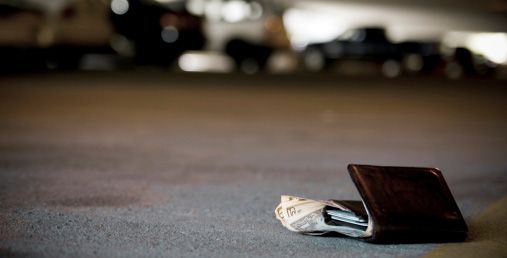At best, losing your driver’s license is a major hassle. But you can minimize the chances of reaching full-on disaster with these urgent must-dos. Whether your license is lost or stolen, you just can’t afford to take any chances.
1) Act Fast
The quicker you respond the better. Calmly retrace your steps and check all the usual license-swallowing suspects:
- Laundry basket.
- Pockets of the clothing you wore when you last had it.
- Washing machine/dryer.
- Car (inside and out, console, in, under and around seats).
- Between couch cushions.
If you still come up empty, now is the time to quickly react as if someone stole your driver’s license.
2) Assess What’s Missing
A lost driver’s license is one thing, but a lost wallet can mean a whole new world of hurt. If anyone had access to your information, and you aren’t a member of an identification theft protection service such as LifeLock, you need to immediately notify:
- Your bank(s).
- Your credit card companies.
- Your health insurance provider.
- The SSA (if your Social Security card was in your wallet).
3) Know What’s at Risk
With the info on your driver’s license, a crook can clobber your credit or start you down the path to financial ruin by:
- Draining your bank accounts.
- Opening new credit card accounts.
- Taking out loans in your name.
- Racking up utility and medical bills.
Unfortunately, identity theft can mean more than a few fraudulent charges. ID forgers can also easily swap your photo and start using your license as their own. Danger arises when they get caught engaging in illegal activity and present your driver’s license as their own to law enforcement.
4) Report the Loss to the Police
Filing a police report creates a paper trail. This helps prove to credit card companies, banks, and even law enforcement that recent activity such as fraudulent charges on your credit card or bank account or illegal misconduct was the work of identity thieves. You should:
- Find the quickest way to file a police report—online, in person, over the phone.
- Be as specific as possible. Small details that don’t seem like a big deal now could turn out to be valuable info later.
- Obtain a copy of the report for yourself.
5) Report the Loss to Your ID Theft Protection Service
Immediately contact your identity theft protection service so it can:
- Place fraud alerts.
- Freeze your credit report.
- And then closely watch your financial accounts.
If you aren’t already a member of an Identity Theft Protection Company, it’s never too late to inquire. Companies such as LifeLock take an aggressive and proactive approach to protecting your identity before you’ve lost your driver’s license or wallet. LifeLock institutes its 5 Points of Protection that include:
- Monitoring your identity for theft.
- Scanning for identity threats.
- Responding to identity theft.
- Tracking your credit score.
- And a $1 million guarantee.
Typically, credit-monitoring services have a waiting period before enrolling you as a member. If you dropped the ball this time around, don't put yourself at further risk down the road. Enroll NOW.
6) Notify the State DMV
Contact the nearest DMV branch to report your lost driver’s license. The State might flag your license number in case another driver gets pulled over by law enforcement and presents your driver’s license as his own. Often times a clerk will only suggest that you immediately apply for a duplicate, but it doesn’t hurt to ask about a database the DMV shares with the police.
7) Replace Your Lost Driver’s License
Depending on when your current driver’s license expires, you might have the option to renew your driver's license versus applying for a duplicate. This might be the easier route considering some states offer online license renewal. First, obtain a copy of your driving record to determine the current status of your driver’s license and check when it expires. It’s also a good idea to check your driving record periodically to ensure someone isn’t getting traffic tickets and racking up points under your name.
If renewal isn’t an option, you’ll likely have to apply for your replacement in person. Before you scramble to the DMV, be sure you:
- Collect all the required documents and acceptable forms of identification.
- Have a form of payment accepted by the DMV. Cash might not pose a problem—unless of course you also lost your debit and credit cards, too.
- Get a ride.
8) Drive Nowhere without Your Driver’s License
It’s illegal to drive without a valid driver’s license on your person. This makes applying for a replacement a little tricky. But don’t risk getting a traffic ticket on top of dealing with everything else. Citations mean added points on your driving record and a potential increase in your auto insurance rates. You might be able to use your driving record as proof of valid licensure until you renew or replace your lost license. But check with the DMV or local law enforcement first.
9) Watch for the Signs of Identity Theft
Channel your inner Magnum P.I. and begin keeping a close watch for anything out of the ordinary. Keep the risks listed above in mind, and:
- Periodically run a criminal background check on yourself to see if warrants pop up.
- Monitor your credit score by periodically reviewing your credit report.
- Answer your phone when numbers you don't recognize pop up on your caller ID. It could be a creditor or collection agency calling to collect on an account that ID thieves fraudulently created.
